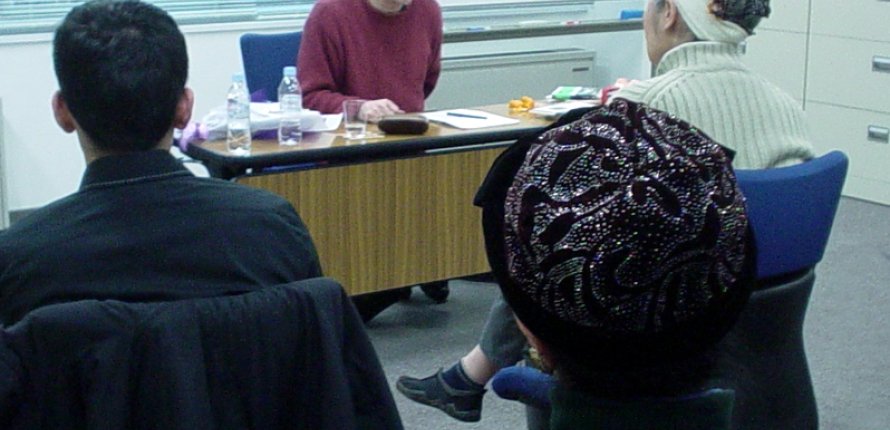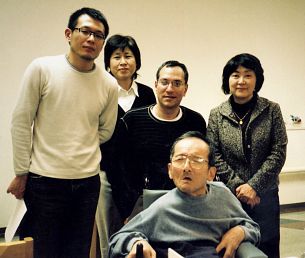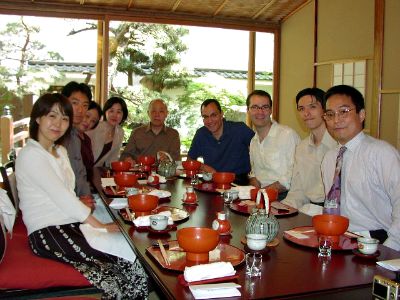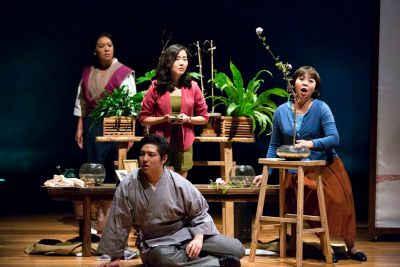‘Otherness’ in Japan: Views of Disability and Difference

Kenny Fries, Faculty, Creative Writing Program at Goddard College
2005-2006 Core Fulbright Scholar to Japan
Kenny Fries, an author and faculty at Goddard College in Vermont, undertook his Fulbright U.S. Scholar research grant to Japan in 2005-2006 to gather material for his book, In the Province of the Gods. In his book, Fries shares his experience in Japan as a foreigner with a disability and explores how the United States and Japan view the body and physical difference.
 Japanese Society for Rehabilitation of Persons with Disabilities
Japanese Society for Rehabilitation of Persons with Disabilities
"One of the most important relationships during my Fulbright was with my faculty advisor, Professor Ryosuke Matsui in the Social Welfare Department at Hosei University. Professor Matsui introduced me to numerous colleagues. These introductions were essential to the research I was able to do while in Japan. We also developed an extremely important personal relationship, as he introduced me to his family, as well," said Fries.
A Hosei University graduate student, Takeo Masako, helped Fries locate material on the history of the disability rights movement in Japan, which was spurred by the 1970 Yokohama case of a mother who killed her disabled daughter. The work of historian Amino Yoshihiko, who focuses on history from the point of view of the marginal, has been another important source for Fries’s understanding of ‘otherness’ in Japanese history, as have the articles published on the survivors of the 1945 atomic bomb known as the ‘Hiroshima Maidens’. Fries also traveled to Hiroshima to meet the hibakusha (Hiroshima Maidens); an article about this interview was published in the Chugoku Shimbun.
 Professor Matsui, his family, and Dobashi Yoshito
Professor Matsui, his family, and Dobashi Yoshito
"Perhaps the most exciting professional event was meeting with Hanada Shuncho, a scholar and writer with cerebral palsy whose article on images of disability in Japanese culture I used after having it translated. My over three-hour meeting with Hanada-sensei not only provided a basis for my research, but was an extremely moving personal exchange. The communication between us, across cultures, across languages, generations, and different physical disabilities will always remain with me as an example of an important cultural dialogue.”
Hanada Shuncho’s work was an important source for a Fulbright-sponsored seminar Fries gave on his research during his grant, titled Demon Amputees and Disfigured Survivors— Closeted Presidents and Blind Lovers: Images of the Disabled Body in Western and Japanese Culture. Fries’s presentation Representation of Disability in the U.S. Media was included in an international seminar sponsored by the Committee for Accessible Broadcast Communication at the Japan Broadcasting Association for Persons with Disabilities.
His Fulbright year also provided Fries with opportunities for creative work with Japanese colleagues. Fries continued his collaboration with singer Mika Kimula on “In the Gardens of Japan,” a song-cycle for voice and traditional Japanese instruments based on Fries’ poems. Additionally, Fries collaborated with calligrapher Yugo Yasuda to produce the tenugui (scroll) that will wrap the CD. Fries also published two articles (available in Japanese translation) in Normalization, a publication published by the Japanese Society for the Rehabilitation of Persons with Disabilities.
 The production of "The Memory Stone"
The production of "The Memory Stone"
Fries has been back to Japan numerous times since his Fulbright grant. It was actually through Mika Kimula that he met composer Marty Regan and was commissioned by the Houston Grand Opera to write the libretto for "The Memory Stone," which Regan composed. "The Memory Stone" is a Japan-themed opera that premiered at Asia Society Texas Center in 2013. “My immersion in Japan, Japanese culture, and especially Japanese gardens, supported by my Fulbright, was essential to my work on the opera.” Fulbright was indeed a gift that keeps on giving.
Editor’s Note: Fulbright continues to advance mutual understanding between the United States and Japan. Ari Beser, a Fulbright-National Geographic Fellow for 2015-2016, will travel throughout Japan, researching the 70th anniversary of the atomic bombings of Hiroshima and Nagasaki and the 5th Anniversary of the Great East Japan Earthquake, Tsunami, and nuclear meltdown in Fukushima. Ari’s blogumentary, “Hibakusha: The Nuclear Family,” will share the voice of survivors of the atomic bombs (Hibukusha) and those directly affected by nuclear technology. Follow his story here.
Click here more information on the Fulbright Program for applicants with disabilities.
